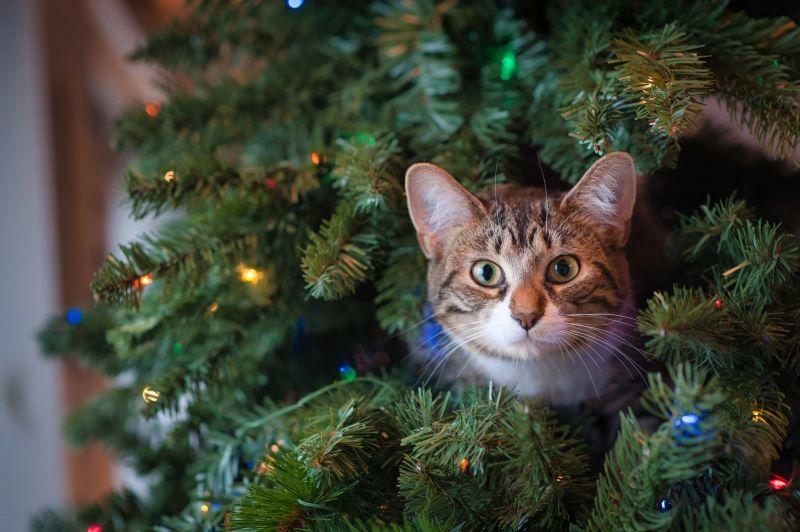Keeping a young, untrained pet away from the Christmas tree can be challenging, especially if it’s its first Christmas and you’re using a flocked Christmas tree.
Even if your older pet is used to not jumping on trees, you should still exercise caution.
Several pet safety hazards are mentioned below, along with some prevention methods. Read on!
Flocking
If significant quantities of flocking, or imitation snow, are swallowed, it can lead to serious health consequences for your pet. The best tree for your home should at least not be flocked.
Flocked Christmas trees look great when decorated properly. But that’s not all. You’ve got to weigh all benefits and downsides before making a choice of Christmas tree.
Branches & Needles
Live trees can be particularly dangerous. Cats and dogs enjoy chewing on the tree limbs, and the oils in the fir tree can cause vomiting and drooling.
It is also possible your pet would swallow needles if it chews on the branches.
Upon ingestion, pine needles can puncture the intestinal lining or bunch together, and cause an obstruction in the intestine. And yeah, a deadly outcome is possible in both cases.
You should also be cautious when using artificial or flocked Christmas trees–the needles may cause obstructions and pets may chew on the crunchy needles.
Putting up your Christmas tree in an area where your pets cannot access is the best solution. You can place a dog pen around the tree to achieve this.
Christmas tree Preservatives
Additionally, some trees are preserved with chemical preservatives. The chemicals sometimes compound in the tree base and contaminate the water there. Uncovered bases will give pets easy access to the water.
Cover your tree skirt using a towel, plastic wrap, or aluminum foil. You can use a plastic bag too.
